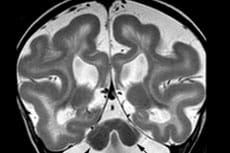Scientists Model Rare Neurodegenerative Disease in a Dish

Scientists from UCLA have succeeded in modelling ataxia telangiectasia (A-T), a rare genetic disorder, in a dish. This neurodegenerative disease affects 1 in 100,000 worldwide, with symptoms that range from difficulty in controlling movement to delayed development. A-T patients are at increased risk for cancer, lung disease, and diabetes. Mouse models, while providing insight into A-T, fail to fully reflect all aspects of this disease. In this study, the scientists coaxed A-T patients' skin cells to become induced pluripotent stem (iPS) cells, which became the type of neurons affected by this disease. The team aims to use these cells to better understand the mechanisms of this disease and to test drug-like chemical compounds.
Read more about this study in Genetic Engineering & Biotechnology News >>

